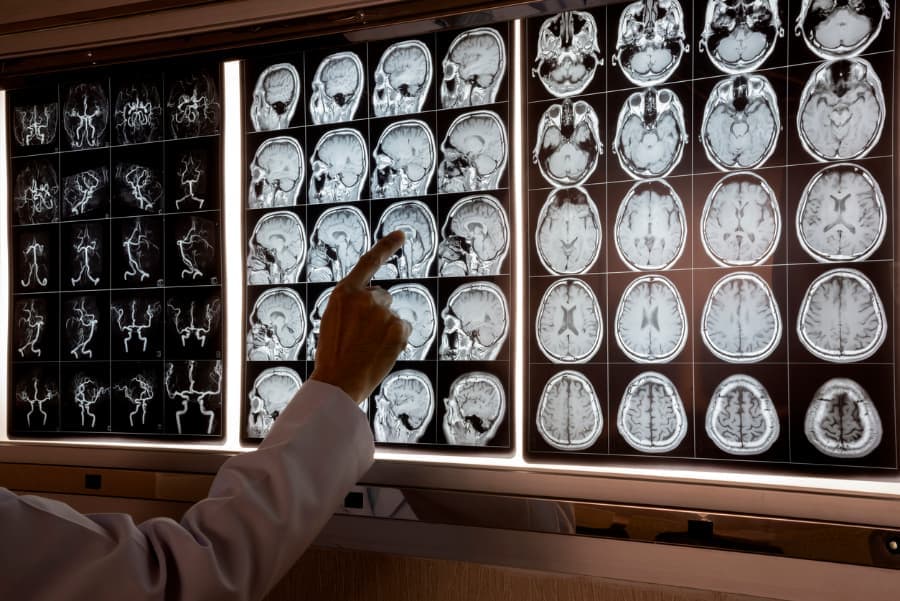Experts in the field of medicine dedicated to the central and peripheral nervous system, neurosurgeons spend a great deal of time treating spinal conditions that include back, neck, and leg pain, herniated discs, and more. Let’s take a closer look at what neurosurgeons do and when it might be time to see one.
What Is Neurosurgery?
The nervous system as a whole begins in the brain and branches throughout the entire body. Many times, the pain patients feel manifests in one location, but thanks to the nervous system, it is felt in a different area. This is what the field of neurosurgery sets out to address. Neurosurgeons diagnose and treat disorders found in the following areas, which may cause symptoms throughout the entire body:
- Brain
- Spinal cord
- Spinal column
- Peripheral nerves
Neurosurgeons play a crucial role in managing neurological disorders with operative and non-surgical means, and they often work hand-in-hand with a patient’s primary care physician, internists, and other specialists.
Conditions Warranting a Neurosurgeon’s Attention
From neck and back pain to Parkinson’s disease and head injuries, neurosurgeons diagnose and treat a variety of nervous system conditions. If you or a loved one has been diagnosed with any of the following diseases or disorders and are struggling to find effective treatment, it might be time to visit a neurosurgeon:
- Stroke
- Sciatica
- Concussion
- Chronic pain
- Hydrocephalus
- Pituitary tumors
- Herniated disc(s)
- Vertebral fractures
- Trigeminal neuralgia
- Carotid artery disease
- Lumbar spinal stenosis
- Cervical spine disorders
Patients should also consider a neurosurgeon’s opinion if they have sustained a sports-related head or neck injury, or traumatic brain injury.
Recognize Symptoms Associated with the Nervous System
The central nervous system houses the spinal cord and brain, while the peripheral nervous system is comprised of autonomic nerves, peripheral nerves, and other neural elements. While each patient experiences nervous system symptoms differently, there are a host of common signs and symptoms that indicate it is time to receive medical attention, including:
- Mental and/or language impairments, including slurred speech
- Double vision or other vision impairments
- Seizures
- Memory problems
- Tingling sensations
- Loss of feeling, sensation, and/or coordination
- Muscle rigidity, weakness, and/or loss
- Headaches that are persistent or feels different than normal
- Back pain radiating to other body parts
RUMC is Home to Board Certifed, Fellowship Trained Neurosurgeons
When one of the aforementioned conditions or symptoms arises in yourself or a loved one, rest assured that a neurosurgeon may be able to help. Richmond University Medical Center is proud to have an expeerienced, board-certifed, fellowship trained team of nerurosurgeons on staff. For more information, contact us today in Staten Island, New York.




